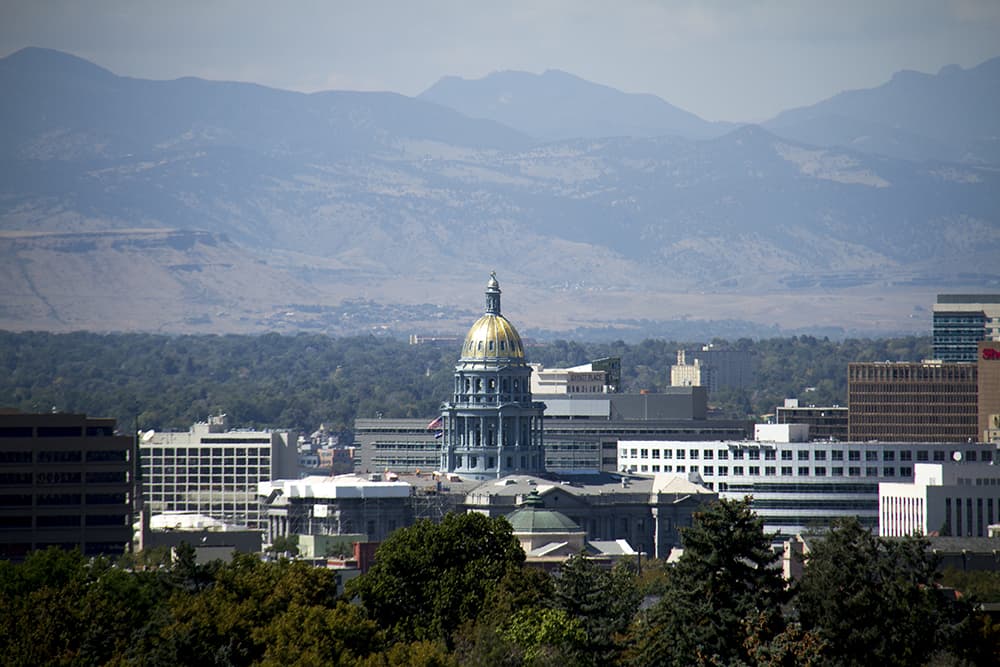Three Colorado prison inmates claim that a correctional officer intentionally pepper-sprayed them as they walked into an Islamic prayer session and later one inmate was severely beaten as retaliation for his attempt to hire a lawyer.
Prominent civil rights attorney David Lane plans to file a lawsuit on their behalf Monday.
"Each one of these prisoners is being held accountable for wrongdoings they committed — crimes they committed against others," Lane said.
"I want to see the guards that committed these crimes held accountable for what they’ve done. I want to see (Department of Corrections) policies put in place so that this doesn't happen. I want to see them fired. And I want to see these men compensated for what happened to them."
The guards named in the lawsuit could not immediately be reached for comment. A Department of Corrections spokesman on Monday afternoon declined to comment on ongoing litigation.
The allegations:
Lane planned to file in federal court on Monday afternoon on behalf of three plaintiffs: Donell Blount, Cecil Mason and Terry Phillips. The suit states that the three men were part of a weekly Islamic prayer service held on Fridays in a specific part of Sterling Correctional, which is in northeastern Colorado.
On April 15, 2016, Blount went to the service's usual classroom at around 1 p.m. He found it was occupied by Officer Ethan Kellogg, who was holding a "Boot Exchange" program, according to the lawsuit.
When Blount asked Kellogg to clear out, the guard allegedly "became hostile in response, refused to relocate them and commanded the inmates to return to their housing unit." There they stayed for about 90 minutes until a voice over the prison intercom directed them to return to the classroom for the prayer service, the lawsuit states.
This would have left just 23 minutes for what was normally a two-hour service, but they went anyway; Kellogg was waiting and opened the door, the lawsuit states.
"Upon entering the room, the Muslim prisoners were immediately engulfed by a cloud of oleoresin capsicum gas (“OC Gas”), also known as pepper spray," Lane's filing alleges.
"The OC Gas caused immediate and intense burning to the plaintiff’s nose, throat and skin, among other things, and also exacerbated plaintiff Blount’s asthma, forcing him to use a rescue inhaler to avert what could have been an otherwise life-threatening situation," the document states.
"As the plaintiff inmates streamed out of Classroom A, gasping for air, they saw the defendant Kellogg laughing at them, apparently pleased with himself for having released a full blast of pepper spray into the relatively small room immediately prior to the Muslim inmates entering because and only because they were Muslim."
The lawsuit claims that Kellogg later admitted to discharging the gas canister just before the inmates entered the prayer room.
Blount, the inmate who led the prayer service, later filed grievances and hired a lawyer. The lawsuit alleges that another officer, David Scherbarth, threatened punishment if Blount hired an attorney and later revoked some of Blount's privileges.
Scherbarth allegedly told the plaintiff that the prison staff would "have your ass in the hole," and would "fucking torture you," if the lawsuit proceeded, according to the complaint.
The lawsuit also alleges that another guard beat Blount while the inmate was handcuffed, "resulting in internal bleeding as evidenced by blood in his urine." This third guard is identified only by the last name Quinlan in the lawsuit.
The lawsuit variously claims the officers used excessive force, discriminated against Muslims, violated free-speech rights and wrongfully retaliated against protected speech.
Kellogg, the guard accused of dispersing the pepper gas, now works at a DOC facility in Denver. He was hired by DOC in 2015. Scherbarth remains at Sterling and was hired in 1989.
What's next:
The defendants will have several weeks to respond. Meanwhile, all three plaintiff-inmates remain incarcerated in Sterling, Lane said.
If the plaintiffs win, they would likely be awarded financial damages, as this is a civil lawsuit.
"One big flaw in the American civil justice system is that all human pain and suffering translates into dollars, " Lane said. "I don’t know if these inmates want money or they would like to see money donated to an Islamic charity. I don't know."
Lane is not aware of any criminal investigation of the guards named in the lawsuit. "I can’t even get the Colorado state attorney general to tell me what happened to the guard in this case. This guard should be prosecuted," he said.
Lane described this lawsuit as the "first shot" by the Lawyers' Civil Rights Coalition, which he founded just after President Donald Trump's election.
"This is in the response to the notion that under the Trump administration, with Jeff Sessions in charge of the Civil Rights Division of the Department of Justice, no one’s civil rights will be protected," Lane said.
The idea is that private attorneys will work in cases outside their expertise in order to strengthen their civil-rights knowledge. For example, one of the attorneys in this lawsuit, Igor Raykin, normally works in education rights and had "never stepped foot in a jail or prison," Lane said.
"And hopefully a bunch of private lawyers, at least in Colorado, can do something to protect the civil rights of the citizens of Colorado."
This story was updated with information on the accused officers' employment.













